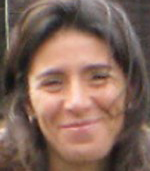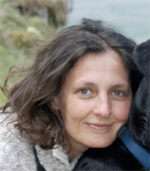Pain Assessment: A Joint Schedule for Two Events!
Workshop on Automated Assessment for Pain
EmoPain Face and Movement Behaviour Challenge
9.00 h: Opening of the AAP-2020 workshop
Session 1 – Chair: Zakia Hammal (Carnegie Mellon University, USA)
9.15 h: Keynote 1
Thomas Hadjistavropoulos (University of Regina, Canada)
10.00 h: Exploring Multidimensional Measurements for Pain Evaluation using Facial Action Units
Xiaojing Xu, Virginia de Sa (University of California San Diego)
10.15 h: Using Deep 3D Features and an LSTM Based Sequence Model for Automatic Pain Detection in the Wild
Sowmya Rasipuram, Nikhil Sai Bukka, Dinesh Babu Jayagopi, Anutosh Maitra. (Accenture Technology Labs; International Institute of Information Technology, Bangalore)
10.30 h: Automatic Pain Detection on Horse and Donkey Faces
Hilde Hummel, Francisca Pessanha, Albert Ali Salah, Thijs J. P.A.M. van Loon, Remco C. Veltkamp (Utrecht University; Porto University)
10.45 h: Break
Session 2 – Chair: Steffen Walter (Ulm University, Germany)
11.00 h: Keynote 2
Lijun Yin (Binghamton University, USA)
11.45 h: Break
12.15 h: Opening of the EmoPain Challenge 2020
Session 3 Chair: Nadia Berthouze (University College London, UK)
12.35 h: LSTM-DNN based Approach for Pain Intensity and Protective Behaviour Prediction
Yi Li, Shreya Ghosh, Jyoti Joshi Dhall and Sharon Oviatt (Monash University)
12.50 h: ALANet:Autoencoder-LSTM for pain and protective behaviour detection
Xinhui Yuan and Marwa Mahmoud (Changchun University of Science and Technology
13.05 h: Multimodality Pain and related Behaviors Recognition based on Attention Learning
Van Thong Huynh, Soo-Hyung Kim, Guee-Sang Lee and Hyung-Jeong Yang (Chonnam National University)
13.20 h: Three-level Training of Multi-Head Architecture for Pain Detection
Saandeep Aathreya Sidhapur Lakshminarayan, Saurabh Hinduja and Shaun Canavan (University of South Florida)
13.35 h: Break
13.40 h: Multimodal Multilevel Fusion for Sequential Protective Behavior Detection and Pain Estimation
Md Taufeeq Uddin and Shaun Canavan (University of South Florida)
13.55 h: Automatic Recognition of Low-Back Chronic Pain Level and Protective Movement Behaviour using Physical and Muscle Activity Information
Fasih Haider, Pierre Albert and Saturnino Luz (University of Edinburgh)
14.10 h: A Curriculum Learning Approach for Pain Intensity Recognition from Facial Expressions
Adria Mallol-Ragolta, Shuo Liu, Nicholas Cummins and Björn Schuller (University of Augsburg)
14.30 h: Announcement of EmoPain 20202 Winner and Award Ceremony
14.50 h: Closing
Download of the schedule (PDF) here: Workshop Schedule
Program Committee
Sascha Gruss, University of Ulm, Germany
Friedhelm Schwenker, University of Ulm, Germany
Raimondo Schettini, University of Milan, Italy
Giacomo Turri, Instituto Italiano di Tecnologia, Italy
Tong Chen, Southwest University, China
Moi Hoon Yap, Manchester Metropolitan University, UK
Maurizio Mancini, University College Cork, Ireland
Huibin Li, Xi’an Jiaotong University, China
Massimiliano Pontil, Istituto Italiano di Tecnologia, Italy
Radek Niewiadomski, University of Genoa, Italy
Bernardino Romera Paredes, Google DeepMind, UK
Abhinav Dhall, Indian Institute of Technology Ropar, IndiaJoel Rivas
Hongying Meng, Brunel University London, UK
Min Aung, Carnegie Mellon University, Pittsbourgh, USA
Paolo Napoletano, Università degli Studi Milano-Bicocca, Italy
Temitayo Olugbade, University College London, UK
Luca Romeo, Universität politecnica delle Marche, Ancona, Italy
Luis Enrique Sucar, Instituto Nacional de Astrofísica, Óptica y Electrónica (INAOE), Mexico
Gualtiero Volpe, Università di Genova, Italy


